Event: Wyss Center Brain Health Symposium
Innovate. Accelerate. Transform Lives.
Campus Biotech Geneva, 09.10.2023
200+
Attendees
13
Speakers
More than 220 people gathered at Campus Biotech in Geneva on October 9 to attend the Wyss Center Brain Health Symposium. The aim was to offer a platform for researchers, academics, and start-ups to present innovation in transformational technologies for brain-related diseases.
The event consisted of three sessions, each led by a keynote speaker. The first session covered innovation in AI wearables, NeuroGI, non-invasive deep brain stimulation, and focused ultrasound technology. The second session opened up with an intervention by James Gorman from the Wyss Institute for Biologically Inspired Engineering, at Harvard University, who presented the achievements realized in the treatment of brain disease by precise brain targeting of drugs. Key innovations in optogenetics therapy, non-invasive visual neurostimulation to enable people living with Alzheimer’s disease form memories, and AI-Enabled electronics. The third session featured organizations working on technologies at a pre-clinical stage.
The event’s format provided attendees with the opportunity to learn about the latest developments and to interact with passionate experts working in the field. The event concluded with a networking aperitif during which attendees were able to engage with peers and presenters to continue to exchange about their fields of research.
We thank all participants and attendees for their presence and their valuable contributions, which made this event a success.
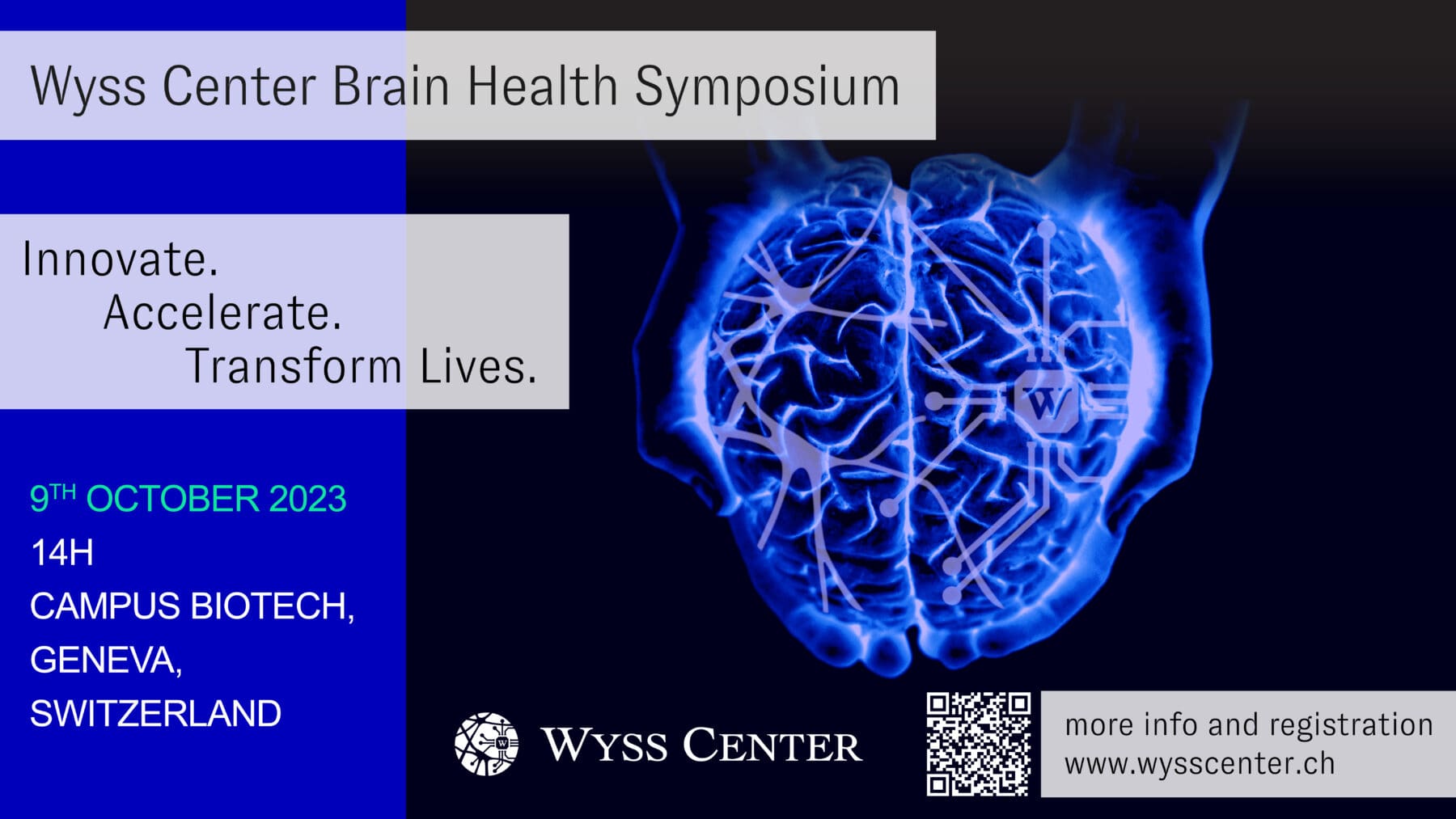
Program
Dr. Erwin Böttinger – CEO, Wyss Center – Welcome and Overview of the Day
Session 1: Innovate
Session Chair: Mark Stolz – Head of R&D, Wyss Center
Keynote speaker: Pr. David Atienza Alonso, PhD – EPFL, Lausanne – Edge AI Wearables for Ambulatory Monitoring of Brain Disorders
Michalina Gora , PhD – Wyss Center, Geneva – Lighting up the Gut-Brain Axis
Pierre Vassiliadis, MD, PhD – Hummel Lab, EPFL, Lausanne – Non-Invasive Deep Brain Stimulation by Means of Transcranial Temporal Interference Stimulation
Pr. Rares Vincent Salomir, PhD – HUG, Geneva – Focused Ultrasound Technology and Clinical Applications for Neurosurgery and Neuro-oncology
Networking Break & Meet the Speakers
Session 2: Accelerate
Session Chair: Dr. Tracy Laabs – CDO, Wyss Center
Keynote speaker: James Gorman, PhD – Wyss Institute for Biologically Inspired Engineering, Harvard University, USA – Transforming Brain Disease Treatment by Precise Brain Targeting of Drugs
Tom Hutson, PhD – Wyss Center, Geneva – Optogenetic Therapy for Spasticity
Fabian Queisner, MSc – Ababax Health, Berlin – Re-Enabling Alzheimer’s Patients to Form Memories with Non-Invasive, Visual Neurostimulation
Mohammad Ali Shaeri, PhD – Shoaran Lab, EPFL, Lausanne – Next-Generation AI-Enabled Electronics for Neuromodulation and BMI
Networking Break & Meet the Speakers
Session 3: Transform Lives
Session Chair: Dr. Craig Cook – Head of Business Development and Licensing, Wyss Center
Keynote speaker: Alik Widge, MD, PhD – University of Minnesota, USA – Engineering Brain Circuits to Treat Psychiatric Disorders
Jonas Zimmermann, PhD – Wyss Center, Geneva – Bringing Brain-Computer Interfaces to People’s Homes
Pr. Dimitri Van De Ville, PhD – EPFL, UNIGE – ASL NQT: A Novel Quantification Tool of Brain Perfusion for Early Diagnosis of Dementia
Mark A. Anderson, PhD – NeuroRestore, EPFL, Lausanne, Wyss Center, Geneva – Regenerating the Spinal Cord
Matt Curran, MBA – Nanoflex Robotics A.G., Wyss Zurich – Nanoflex Robotics: Remote Robotic Treatment of Stroke
Networking Aperitif & Meet the Speakers
Speakers
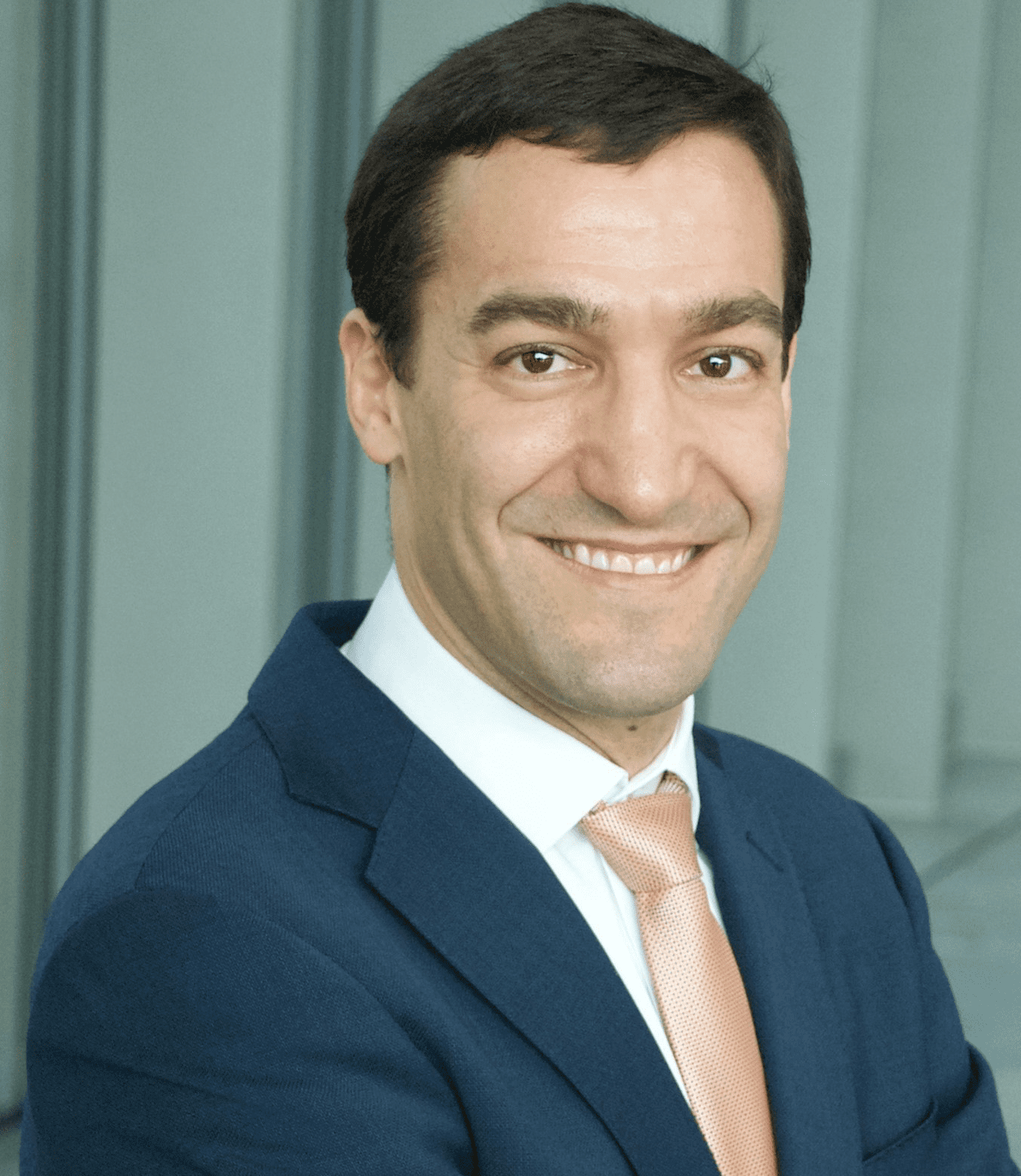
Pr. David Atienza Alonso, PhD – EPFL, Lausanne
David Atienza Alonso is a professor of Electrical and Computer Engineering, Head of the Embedded Systems Laboratory (ESL), and Scientific Director of the EcoCloud Sustainable Computing Center at EPFL, Switzerland. He received his MSc and Ph.D. degrees in computer science and engineering from UCM, Spain, and IMEC, Belgium, in 2001 and 2005, respectively. His research interests include system-level design methodologies for high-performance multi-processor system-on-chip (MPSoC) and low-power Internet-of-Things (IoT) systems, including new thermal-aware design for high-end MPSoCs, and ultra-low power edge artificial intelligence (AI) architectures for IoT, wearables and industrial applications.
Prof. Atienza has co-authored more than 400 papers, one book, and 14 licensed patents in the aforementioned areas. He has also received several recognitions and awards, among them, the ICCAD 10-Year Retrospective Most Influential Paper Award in 2020, the Design Automation Conference (DAC) Under-40 Innovators Award in 2018, the IEEE TCCPS Mid-Career Award in 2018, an ERC Consolidator Grant in 2016, and both ACM and IEEE Outstanding Early Career Awards. He has also earned several best paper awards at top conferences in the areas of electronic design automation (EDA), embedded and cyber-physical systems, and medical devices. He is a Fellow of IEEE, Fellow of ACM, and a Fellow of the new European Laboratory for Learning and Intelligent Systems (ELLIS), which is a world-recognized pan-European AI network of excellence that focuses on fundamental science related to AI and machine learning technology.
As one of the key applications of his research work at ESL of EPFL in the last 15 years, Prof. Atienza’s work has pioneered the concept of smart embedded systems and edge computing for autonomous health monitoring and telemedicine. In this area, he has developed important contributions to methodologies for the design and optimization of energy-efficient and adaptive smart wearables and IoT systems including embedded AI algorithms. In particular, he developed a new generation of ultra-low-power and reconfigurable MPSoC architectures for smart wearables based on compressive sensing and biosignal processing (in particular for real-time multi-lead ECG processing). Then, in the last years, he has proposed to enhance microcontroller-based architectures with HEAL-WEAR, a novel kernel processing accelerator based on coarse-grained Reconfigurable Array (CGRA) technology to enable multi-parametric smart wearables with edge AI capabilities. ESL has collaborated strongly with more than 30 companies worldwide on these topics. These new MPSoC wearable architectures and related embedded AI algorithms for automatic bio-signal analysis and pathologies detection are used by many providers of ambulatory, continuous, and real-time outpatient management solutions.
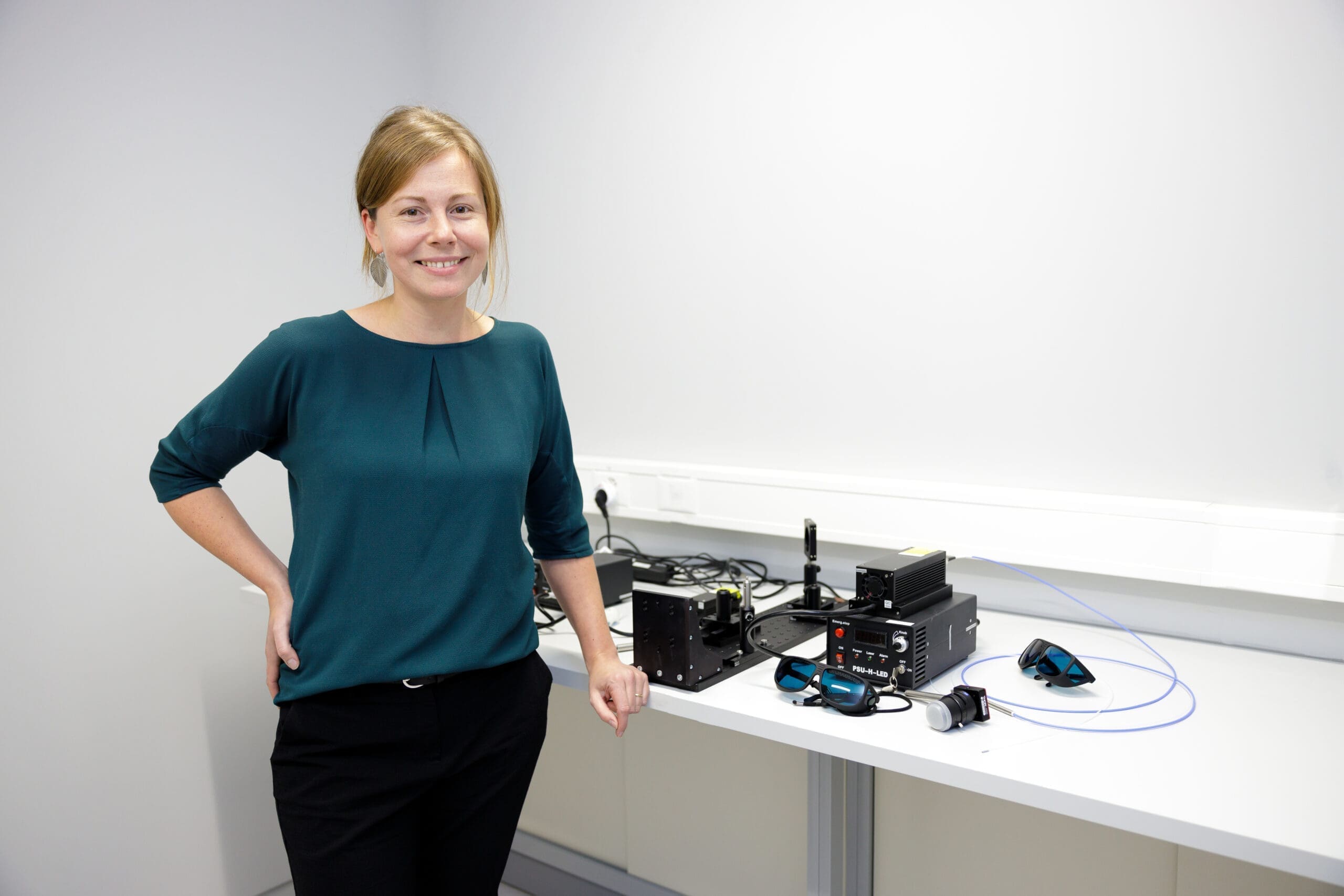
Michalina Gora , PhD - Wyss Center, Geneva
Michalina Gora joined the Wyss Center as Neurophotonics Manger in November 2021. Her role is to develop and execute neurophotonics projects at the Center, at various development stages from early ideas to preclinical and early stage clinical.
Her work is motivated by solving medical problems and her approach is to interlink the scientific development with regulatory guidelines from the very beginning of the project. She has over ten years of experience in academic interdisciplinary research in close collaboration with medical doctors. She previously developed, and translated to ‘first in human’, Optical Coherence Tomography imaging devices for ophthalmology and gastroenterology.
She is now starting a new research direction focused on investigation of the connection between the gut and the brain using light to improve management of neuro and digestive disorders.
She obtained her PhD in Physics and Biomedical Engineering in 2010 from Nicolaus Copernicus University in Poland. Subsequently, she was a postdoctoral researcher in the team of Prof. Guillermo Tearney at the Wellman Center for Photomedicine, Massachusetts General Hospital and later a junior faculty at Harvard Medical School in Boston. In 2015 she joined the ICube Laboratory at French National Center for Scientific Research (CNRS) where she led a research group focused on combining optical imaging methods with robotics for comprehensive diagnosis and improved minimally invasive treatment of diseases.
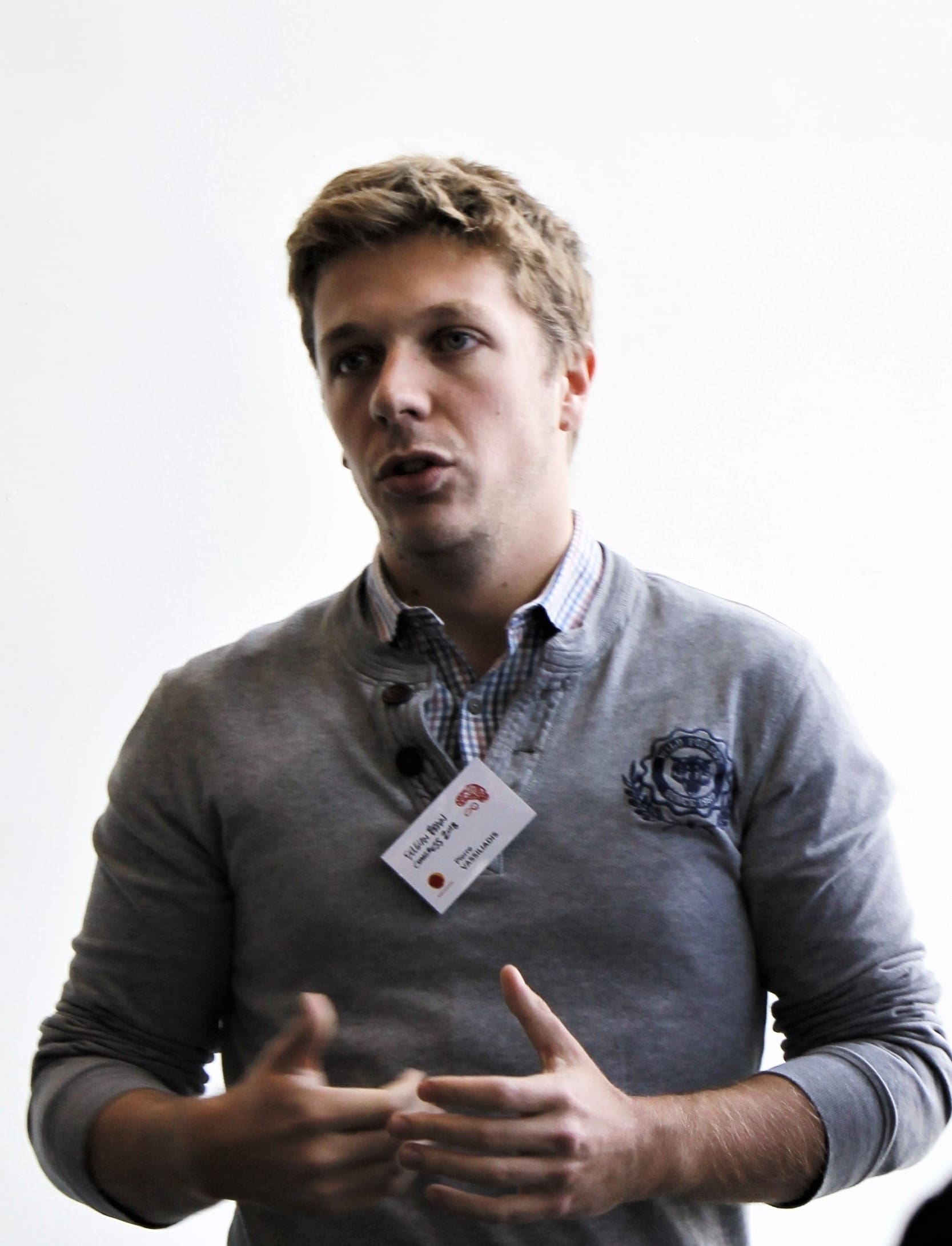
Pierre Vassiliadis, MD, PhD – Hummel Lab, EPFL, Lausanne
Pierre Vassiliadis, is a postdoctoral researcher in the group of Prof. Friedhelm Hummel at the École Polytechnique Fédérale de Lausane (EPFL) in Geneva. Dr. Vassiliadis investigates the behavioral and neural correlates of reward processing during motor behavior, with the goal to translate this knowledge towards population of patients suffering from motor or motivational deficits. In this regard, he has been recently working on the development of transcranial Temporal Interference stimulation, a new, non-invasive brain stimulation tool allowing to target deep brain structures in humans.
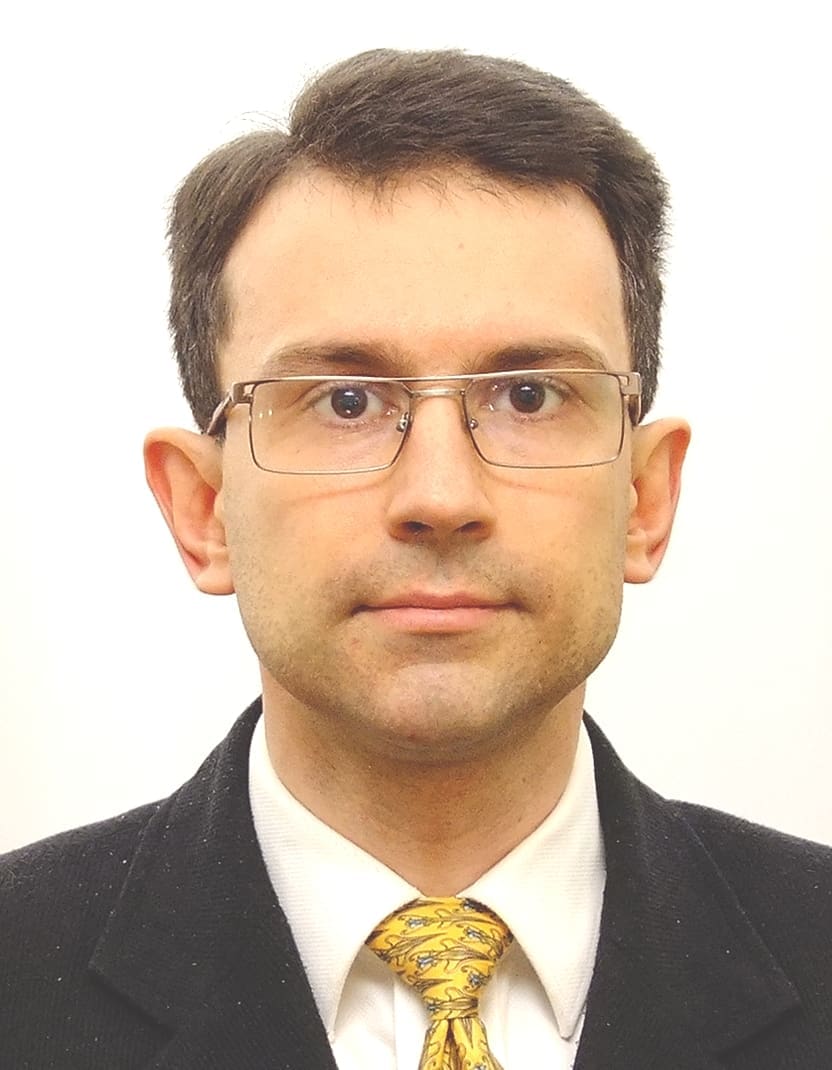
Pr. Rares Vincent Salomir, PhD – HUG, Geneva
Rares Salomir is an associate professor of medical physics and a research group leader, jointly affiliated with the Faculty of Medicine, University of Geneva and the Radiology Division of University Hospitals of Geneva (HUG). He has 25 years of successful experience in the field of interventional MRI technology and, particularly, magnetic resonance guided focused ultrasound. This approach is currently applied in routine clinical treatments for motion disorders at HUG.
Prof. Salomir initiated and published original developments on MRI thermometry, new design of focused ultrasound transducers, real time control of the thermal therapy, as well as a new class of sonosensitizers exploiting liquid-core high boiling point endovascular micro-droplets. He signed 16 patent applications and approximately 100 peer reviewed scientific articles.
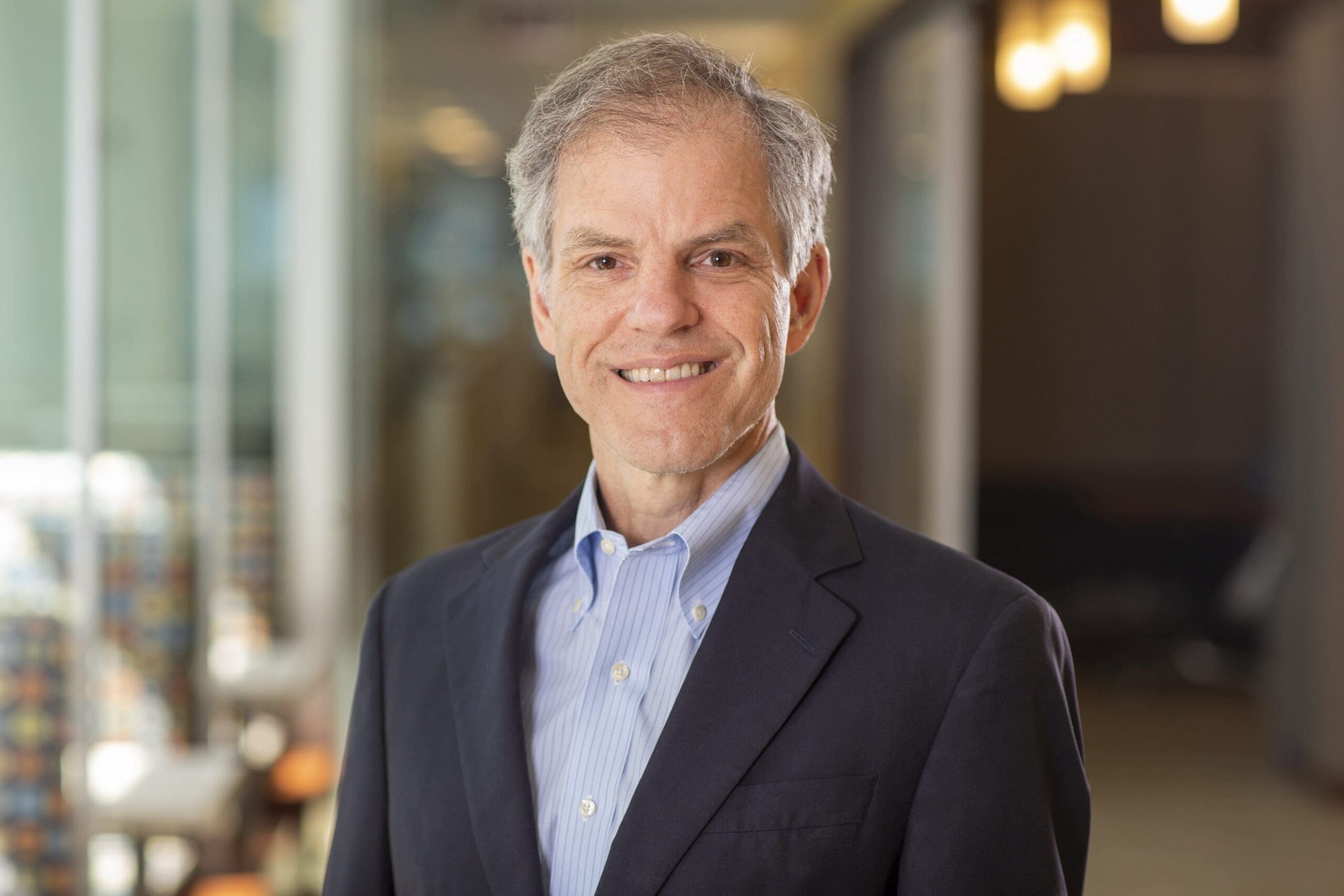
James Gorman, PhD – Wyss Institute for Biologically Inspired Engineering, Harvard University, USA
Jim is Principal Investigator on the Wyss Institute Brain Targeting Program (BTP). In this role, Jim leads a team developing new approaches to transport drugs through the blood brain barrier (BBB) into the CNS. The BTP collaborates broadly, using its brain shuttles to develop improved brain-targeted therapeutics to dramatically improve treatment of brain diseases. A major focus of the program is fostering pre-competitive collaboration between diverse pharmaceutical companies, academics, and philanthropists to accelerate progress in brain delivery. The vision shared by Jim and his BTP colleagues is to make available to drug developers the engineering tools and expertise to target any drug to any brain cell type and subcellular compartment for the treatment of any brain disease.
Jim worked for 7 years in licensing, acquisitions, portfolio management and strategic initiatives at Abbott Labs (now Abbvie). He oversaw antibody technology platform development and therapeutic R&D portfolio management, from target identification and validation through pre-clinical drug discovery and development. There, he received the Abbott President’s Award for his role in initiating, championing and executing the 2001 acquisition of the blockbuster anti-TNF antibody Humira®, in 2021 the top-selling drug worldwide, with annual sales of $20.7 billion. Jim formed and led Abbott’s Antibody Strategy Team and then co-chaired the Portfolio Management Committee, initiating and overseeing a process that led to the launch of ten new inflammation and oncology discovery projects. After leaving Abbott, he co-founded and served as CEO of two biotech startups. BioAssets Development developed antibody anti-inflammatory therapies for treatment of pain in patients with disk herniation and sciatica, and was acquired by Cephalon. 121 Bio developed single domain antibodies for use in immune-oncology, and was acquired by Agenus.
Jim obtained his M.D. and Ph.D. degrees at Harvard Medical School, where he researched molecular genetics of antibody formation in the lab of Dr. Frederick Alt. He graduated summa cum laude from Yale University.
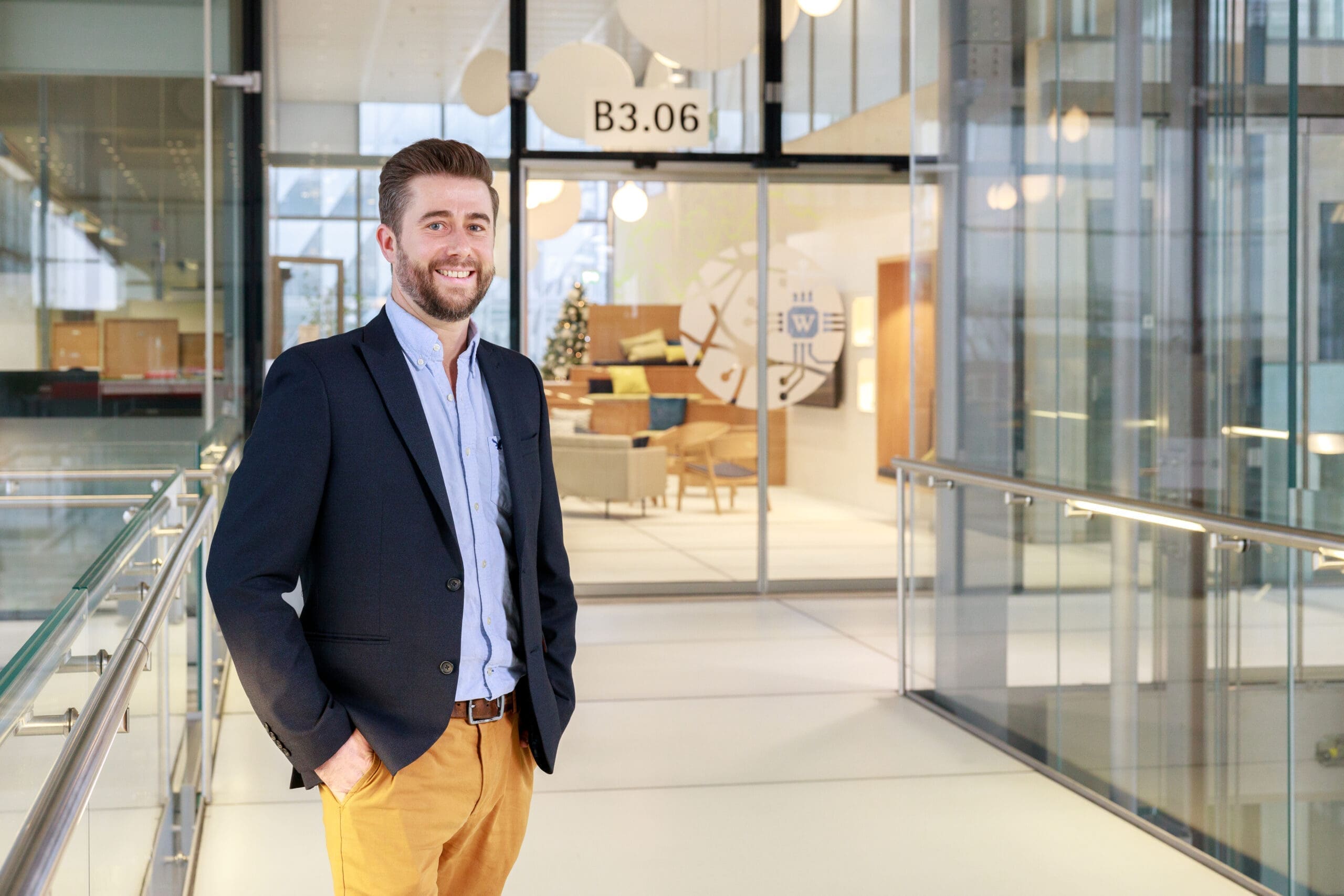
Tom Hutson, PhD - Wyss Center, Geneva
Tom Hutson joined the Wyss Center in September 2022. His mission is to develop innovative cell-type targeted optogenetic therapies for nervous system disorders that combine neuroscience and bioengineering.
Tom received his PhD in Neuroscience from King’s College London and then undertook positions at Imperial College London and EPFL where he leveraged molecular systems biology approaches to uncover neuronal populations essential for the recovery of sensorimotor function and developed bio-compatible optoelectronic devices to target specific neuronal populations. Tom brings extensive knowledge in translational research and an established background in gene-therapy mediated neuromodulation in regenerative medicine.
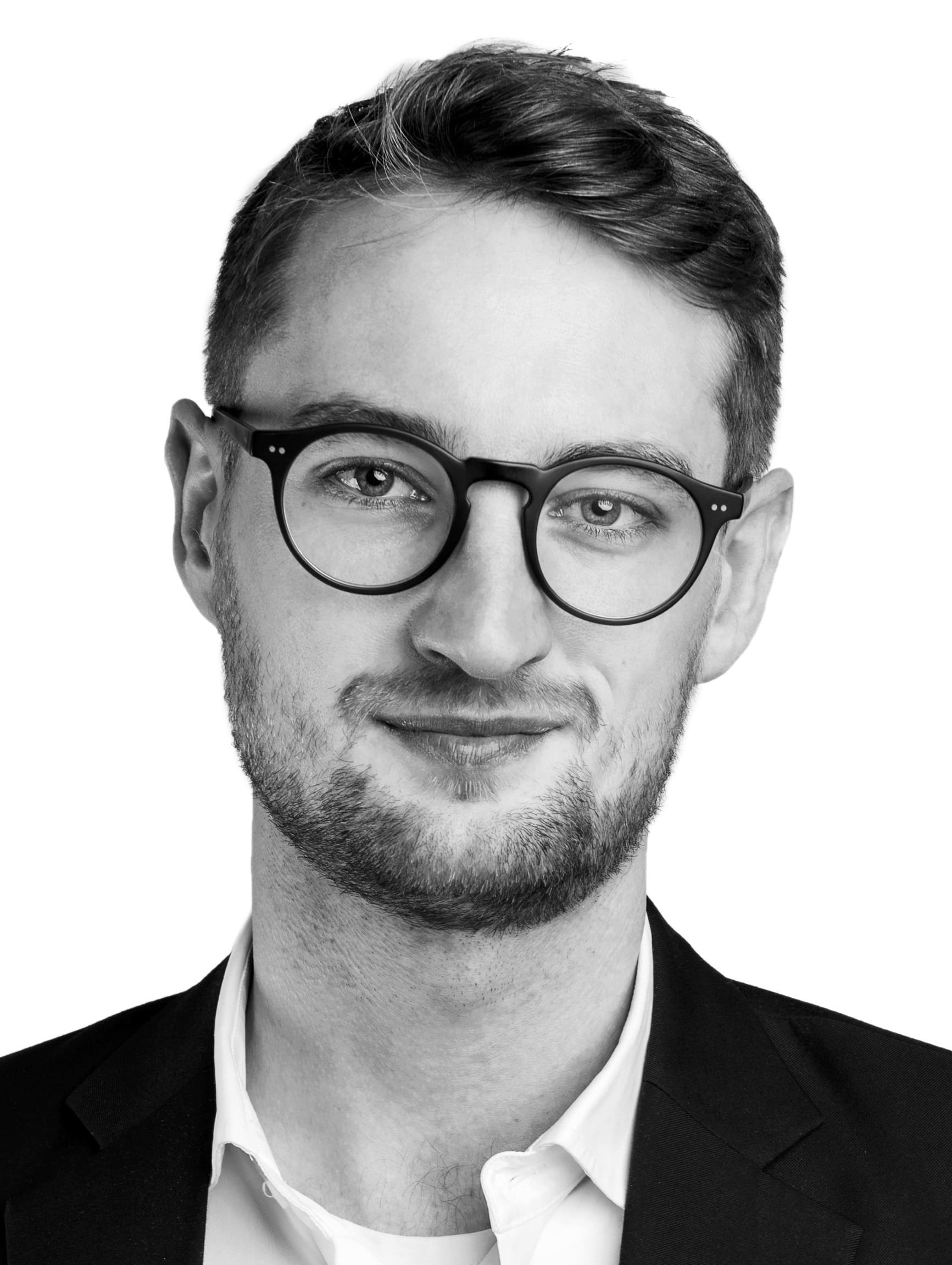
Fabian Queisner, MSc – Ababax Health, Berlin
Fabian Queisner is the CEO of Ababax and of its product subsidiary Neuraltrain.
Ababax is a Deeptech Digital Health company that develops Digital Drugs: non-invasive brain stimulation technologies, delivered via consumer devices such as a standard smartphone. The pipeline of Ababax includes Digital Drugs to treat depression, anxiety, myopia, or cognitive decline.
Before joining Ababax, Fabian worked for its mother company Eternity.Health, a European life science technology holding with a strong footprint in Digital Health. The operated portfolio includes Flying Health (Digital Health strategy consultancy), Heal.Capital (100m EUR Digital Health VC fund) and Ababax.
Before, he worked as a consultant for multinational M&A projects in PwC's Delivering Deal Value (DDV) team, with a focus on value creation and operational deal execution. He hold a M.Sc. in economics.
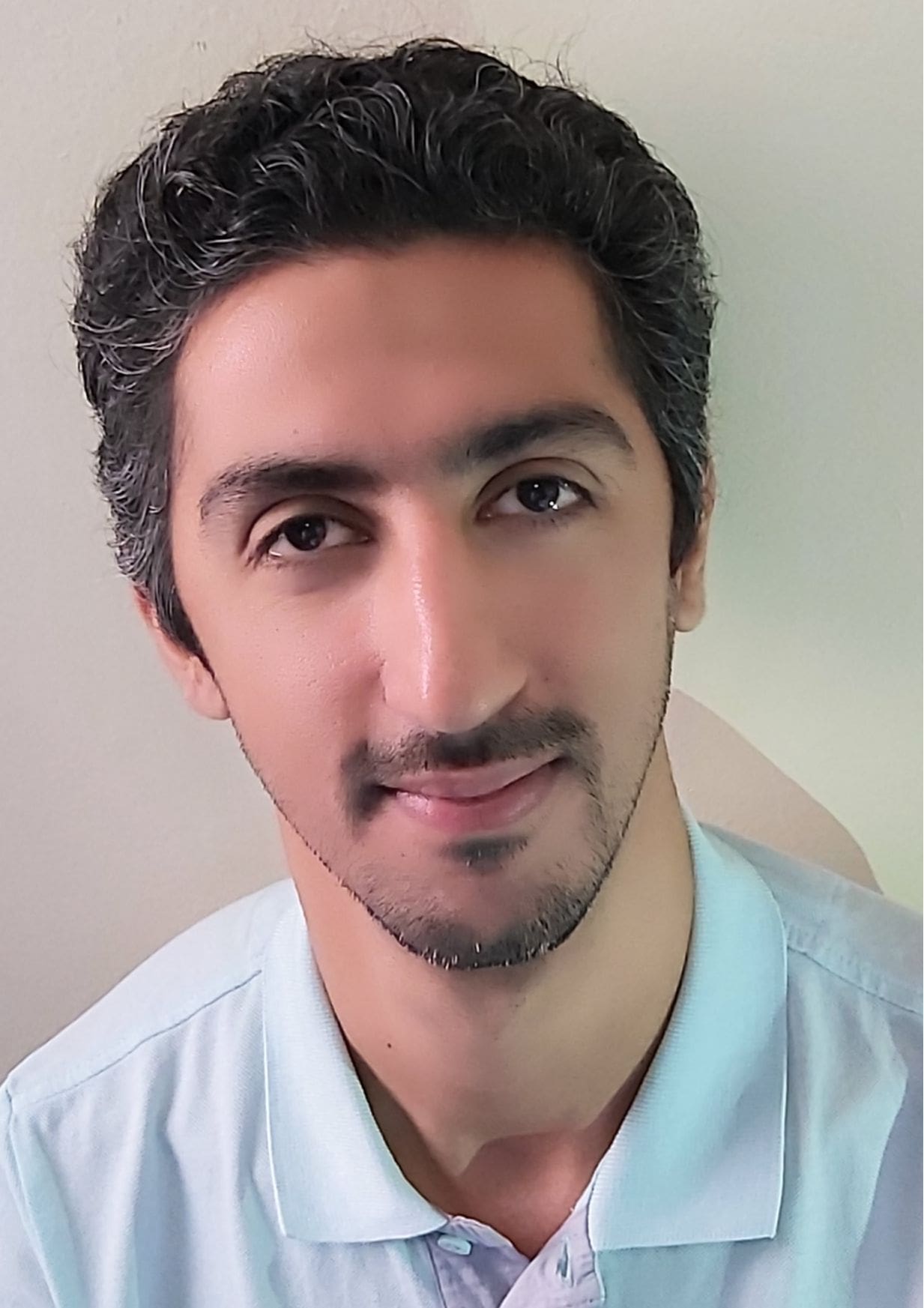
Mohammad Ali Shaeri, PhD – Shoaran Lab, EPFL, Lausanne
Mohammad Ali Shaeri received the BSc and MSc degrees both in electrical engineering from K.N. Toosi University of Technology, Tehran, Iran, in 2008 and 2011, respectively. He earned his PhD degree in cognitive neuroscience at the School of Cognitive Sciences, IPM-Institute for Research in Fundamental Sciences, Tehran, Iran, in 2018. He joined INTegrated ELECTronics (INTELECT) lab at York University, Toronto, Canada, as a postdoctoral researcher in 2019. Since 2021, MohammadAli has been with the Integrated Neurotechnologies Laboratory (INL) at EPFL, Geneva, Switzerland, as a research scientist. He has published several papers and holds a patent in the general area of neural engineering and neural signal processing. His research interests include signal processing, information theory, machine learning, neural decoding, brain-machine interfaces, and implantable neural prostheses.
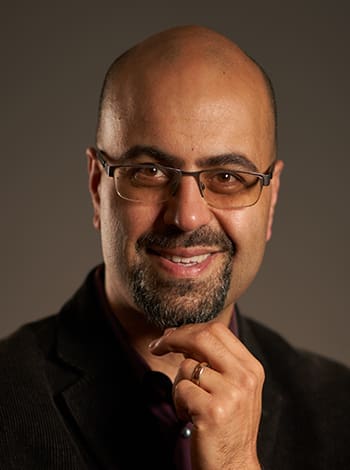
Alik Widge, MD, PhD – University of Minnesota, USA
Alik Widge, MD, PhD, is a psychiatrist and biomedical engineer. Clinically, he provides brain stimulation treatments for mood, anxiety, and substance disorders. These include deep brain stimulation, cortical stimulation, and transcranial magnetic stimulation.
His research focuses on developing these treatments further, particularly the creation of new "closed loop" devices. These devices sense brain signals in real-time and deliver energy in a planned and rational fashion, compensating for each patient's specific brain network abnormalities. His laboratory (TNE Lab) prototypes new stimulation paradigms and targets in rodent models, conducts clinical trials of these new technologies, and searches for biomarkers of illness and recovery to guide next-generation therapies.
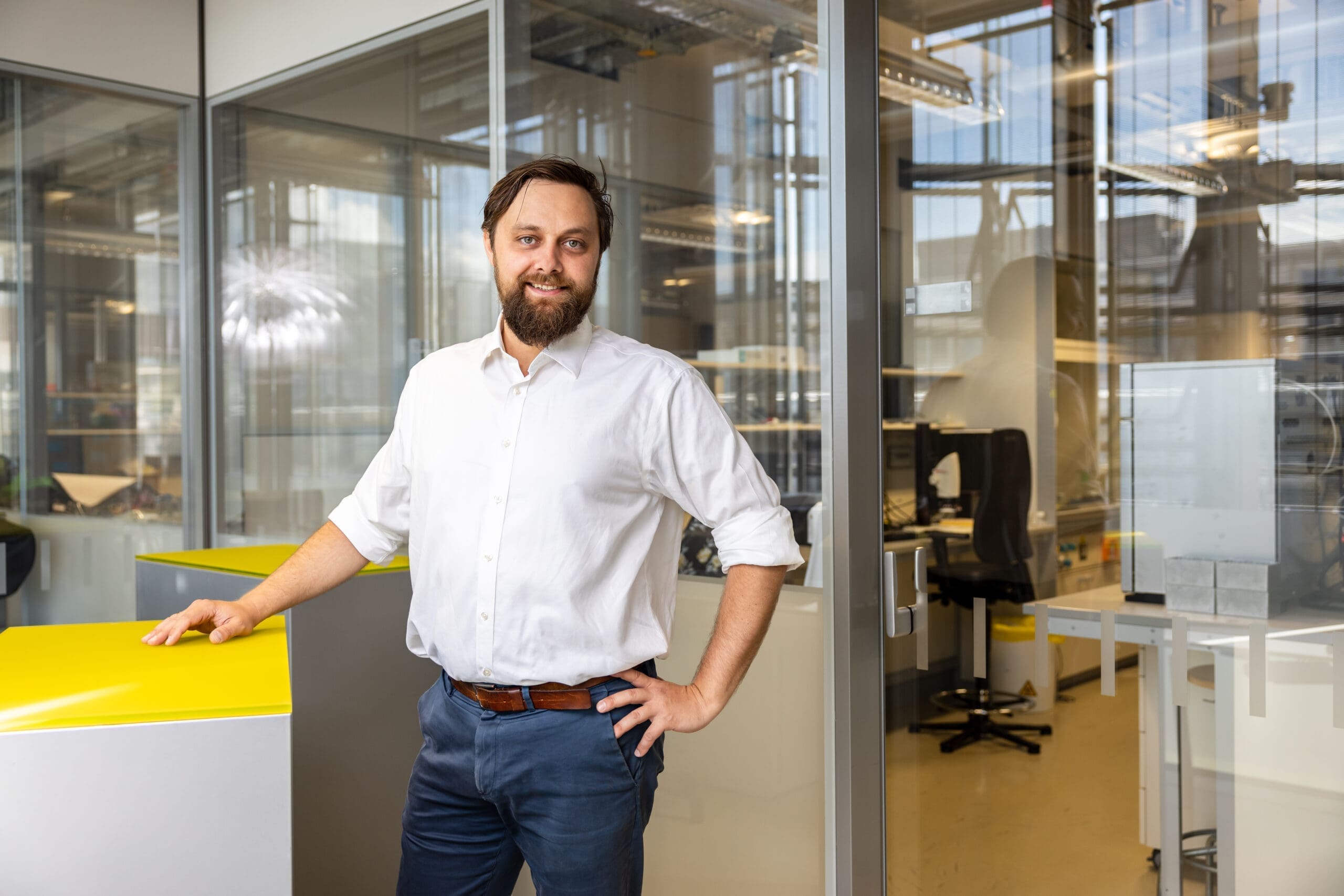
Dr. Jonas Zimmermann, PhD – Wyss Center, Geneva
Dr Jonas Zimmermann joined the Wyss Center in 2017. In his role as Senior Neuroscientist he leads the development of Brain-Computer Interface technologies and their clinical applications. He also has a keen interest in advanced neural data processing algorithms and supports various projects at the Wyss Center in this area.
Jonas earned his PhD from Newcastle University (UK), working on spinal cord stimulation to restore movement. He brings more than fifteen years of experience both with human and animal neuroscience working with technologies as diverse as fMRI, multielectrode array recordings, optogenetic and electrical stimulation, and EEG.
As a scientist, Jonas aims to understand the intricate interplay between brain, spinal cord, and muscles to generate skilled hand movements. He wants to put this knowledge to good use and help people who have lost this ability due to disease or injury.
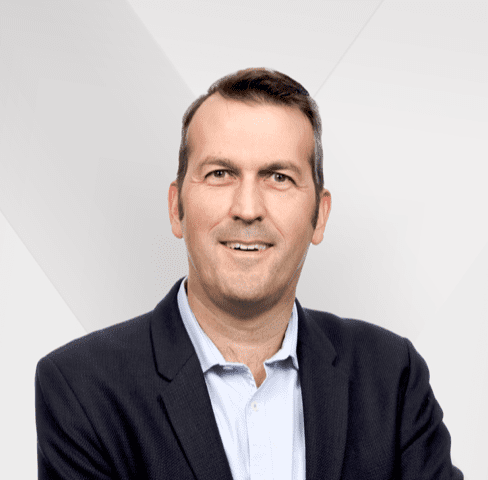
Pr. Dimitri Van De Ville, PhD – EPFL, UNIGE
After having received his PhD at Ghent University, Belgium in 2002, Professor Van De Ville continued his scientific career at the Ecole Polytechnique Fédérale de Lausanne (EPFL). In 2005, he became the group leader of the Signal Processing Unit at the Center for Biomedical Imaging (CIBM). In 2009, his research activities led to a Tenure-Track Assistant Professorship funded by the Swiss National Science Foundation. Currently, he is an associate professor of bioengineering at the Neuro-X Institute of the EPFL, and is affiliated to the Department of Radiology and Medical Informatics at the University of Geneva.
His laboratory has been focusing on extracting brain states from fMRI measurements using advanced modeling approaches based on network science and dynamical systems. His multidisciplinary work has allowed a better understanding of spontaneous activity and to establish new markers for cognition and clinical conditions. Recent work also includes neurofeedback using real-time fMRI.
He was a recipient of the Pfizer Research Award 2012, the NeuroImage Editors' Award 2013, the NARSAD Independent Investigator Award 2014, and the Leenaards Foundation Award 2016. He was elected Fellow of the IEEE in 2020 and of the EURASIP in 2023.
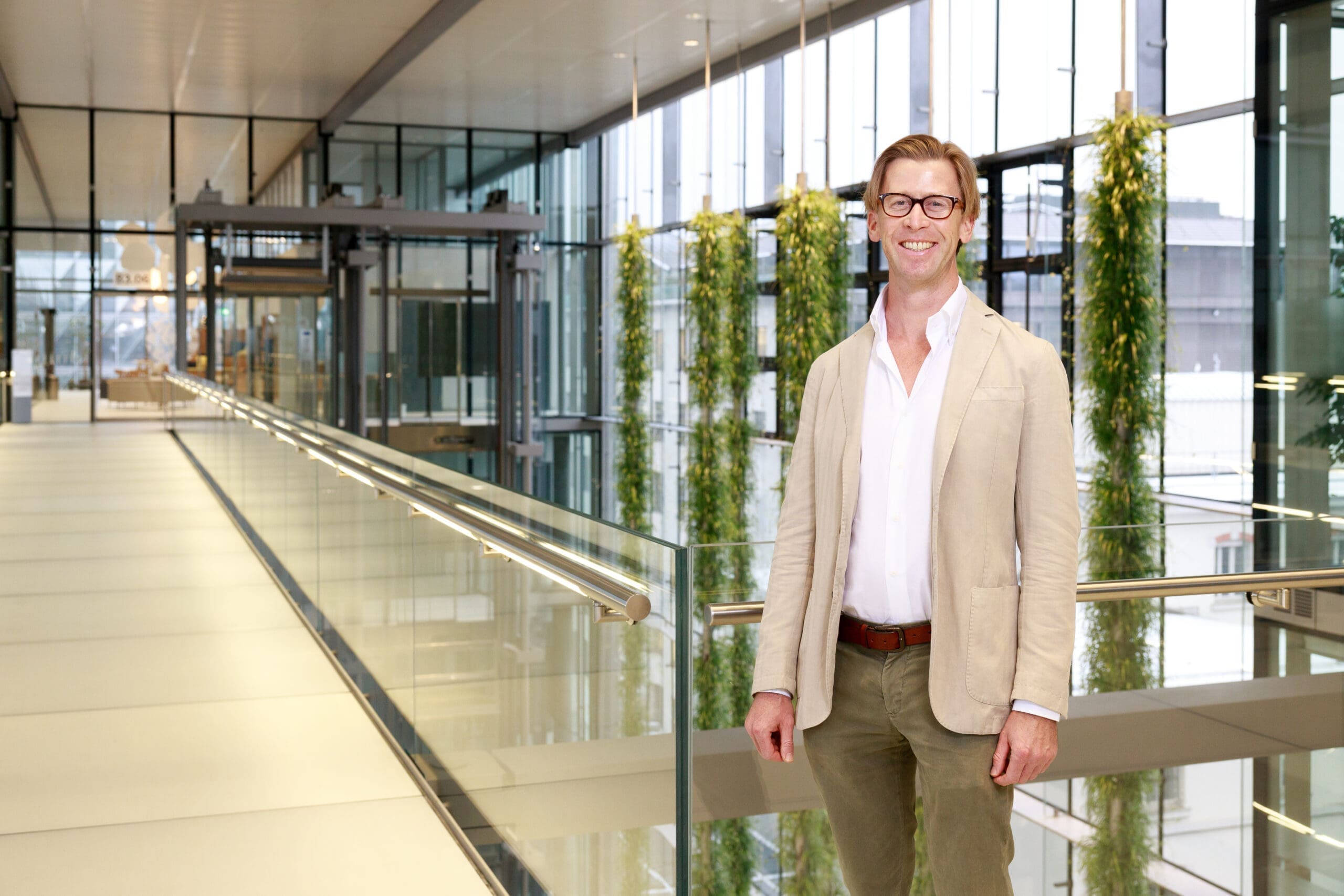
Mark A. Anderson, PhD – NeuroRestore, EPFL - Lausanne; Wyss Center, Geneva
Mark joined the Wyss Center in October 2022 as Head of Spinal Cord Repair. Concurrently, he serves as Director of Central Nervous System Regeneration at NeuroRestore. He holds BSc and MSc degrees in Chemical Engineering from the University of Southern California. He received his PhD in Neuroscience from the Swiss Federal Institute of Technology, Lausanne (EPFL) in 2017 and completed postdoctoral research at EPFL and UCLA. His work during this time uncovered innovative cellular and molecular mechanisms governing central nervous system regeneration following spinal cord injury.
Prior to joining the Wyss, he was a Swiss National Science Foundation Ambizione group leader at EPFL, where his team leveraged single cell transcriptomics to guide the design of a biological repair strategy which regenerates a molecularly defined subpopulation of neuron and reverses paralysis following spinal cord injury. His mission at the Wyss is to scale up these findings in larger animal models with the goal of repairing the injured human spinal cord.
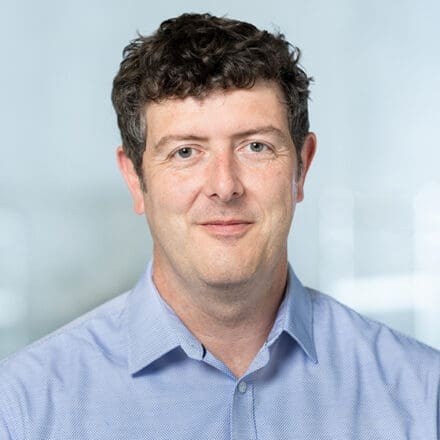
Matt Curran, BSc, MBA – Nanoflex Robotics A.G., Wyss Zurich
Matt Curran has over 25 years commercial experience in the Medical device industry. He cofounded Nanoflex Robotics in 2021. Prior to Nanoflex he held multiple senior management positions for Medtronic in Europe, Asia and North America most recently as the Vice President for Medtronic Neuro and Spinal business’s for Europe Middle East and Africa.